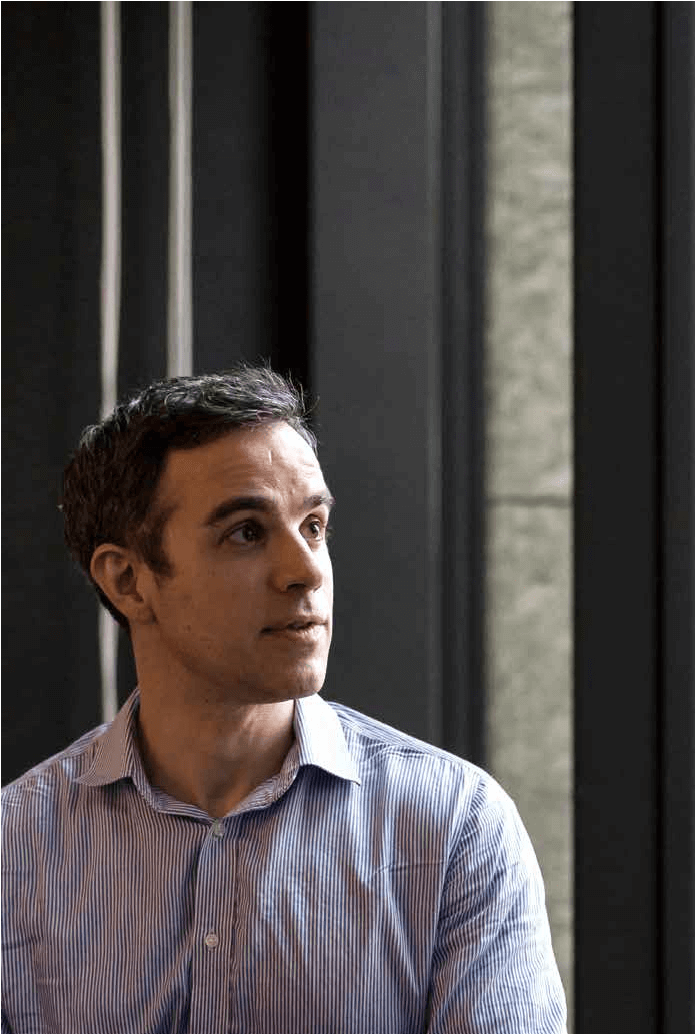Issue:

Ben Dooley
The New York Times
By Julian Ryall
“I THINK IT’S IMPORTANT THAT CORRESPONDENTS NOT EXOTICIZE THE PLACE WHERE THEY ARE POSTED”
After almost five years reporting from Beijing, Ben Dooley says Japan is a breath of fresh air both professionally and personally. The Japan business correspondent for the New York Times, Dooley arrived in Tokyo in February and says his first reaction to being here was to be grateful for the lack of pollution in the city.
“There were days when I would look out of my window in Beijing and I wouldn’t be able to see to the other side of the road,” he said. “After being there for a few years, I developed a natural sensitivity to air quality and while there is still pollution here, it’s not the same as in China.”
Originally from what he describes as “a small town on the Chesapeake Bay in Virginia,” 40 year old Dooley says he is also grateful for the relatively unfettered access to government agencies, academics and corporate leaders. Asked about the “hurdles” that he has come up against in his reporting in the last seven months, Dooley says they are relatively low.
“They don’t seem like hurdles because I’ve just come from China, where it is so difficult to report on anything and to just do your job,” he said. “It’s refreshing to come to Japan and to be able to walk into METI [The Ministry of Economy, Trade and Industry] and be briefed on an issue by an official who is at least being reasonably frank with you.”
Dooley credits his present position to “a good degree of good fortune.” He completed a degree in Asian studies at the University of Virginia, where he “fell in love with kanji characters.” “They were just so very different to anything that I had seen before and there was something very graceful and expressive about them.”
HE ADMITS THAT LEARNING sufficient kanji to be able to get by “did not come easy,” but after 18 months with a South Korean Internet startup and as a PBS online video producer in Washington DC—he honed his language abilities during two years in a mountain town in Aichi Prefecture with the Japan Exchange and Teaching program.
In 2005, he returned to the US and took a Masters in East Asian Studies at Stanford University. It was during his time at Stanford that his career path veered off. “I had thought that I would go into government, but I attended a lecture by Bill Keller, then the executive editor of the New York Times, and I got it into my head that journalism would be an interesting and fun thing to do.
Correspondents do not, of course, simply walk into plum overseas assignments, although Dooley felt that his knowledge of Asia, some of its languages, culture, economic and political issues, meant that he would be most valuable to a news organization in this part of the world.
Back in Washington but with an eye on Asia, Dooley joined the local bureau of Kyodo News. Initially hired as a news assistant, he was soon given free rein to chase down his own stories, primarily in the State Department and then in the White House. During his four years with Kyodo, Dooley was promoted to a staff writer position and was informed that the agency had an opening in China for an English speaking correspondent.
Around 18 months after taking up the position, he moved over to Agence France Presse and was covering domestic Chinese politics, business and, increasingly, human rights issues. “When I first went to Beijing, I did not really have an interest in human rights issues because it looked like things were getting better. But it became apparent that things were actually getting much, much worse, far more quickly than anyone expected,” he said.
“TO ME, NOTHING WAS more important to write about than the persecution of people by their own government,” Dooley said. “The Uighurs is the most obvious case, but there were a lot of horrible things happening to people all over the country.”
He went to China wanting to write good things about the country, but it was very difficult when so much that was negative was going on. “It became more and more oppressive. Everyone believed and hoped Xi [Jinping] would be a reformer and would open the country up when he came to power, but those hopes quickly disappeared.”
Towards the end of his fourth year in Beijing, a friend contacted him to let him know that the Times was looking for a correspondent with experience and language skills to be based in Tokyo. It was, he says, another stroke of luck.
After a spell training at the paper’s headquarters while he waited for his accreditation to come through, Dooley arrived in Tokyo in February. Contrary to some suggestions that Americans in general are not very interested in what is going on beyond their borders, Dooley says readers of the New York Times do care about what is happening around the world.
“My job, my challenge is to make the news interesting and enjoyable to the readers,” he said. “At the same time, I don’t want to do the vending machine stories or write about sex robots. I think it’s important that correspondents not exoticize or fetishize the place where they are posted. And I think that has sometimes been a problem with coverage of Japan.”
Instead, Dooley said, he wants to get his teeth into the longer term investigative stories, similar to some that he pursued in China.
“Those would be my first love in journalism. It would be better for the world as a whole if those stories were not out there, but we all know they are.”
Julian Ryall is Japan correspondent for the Daily Telegraph.

